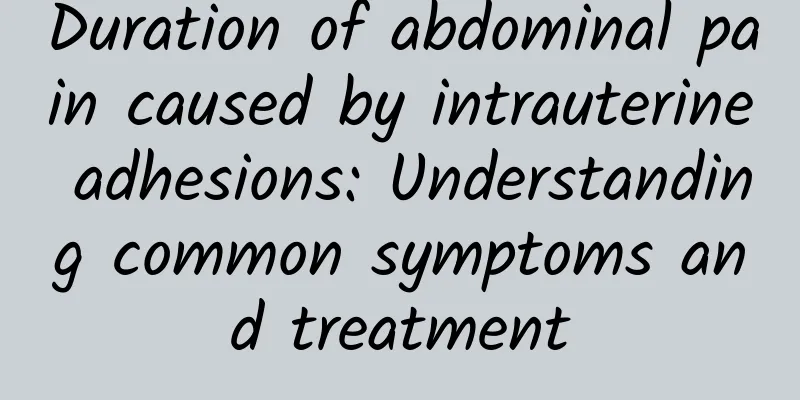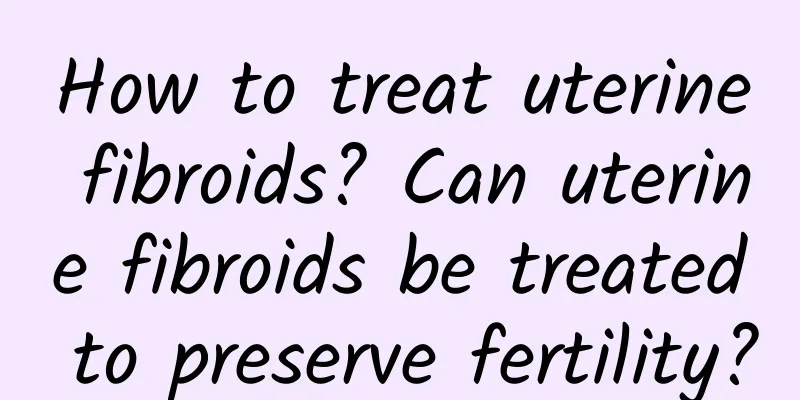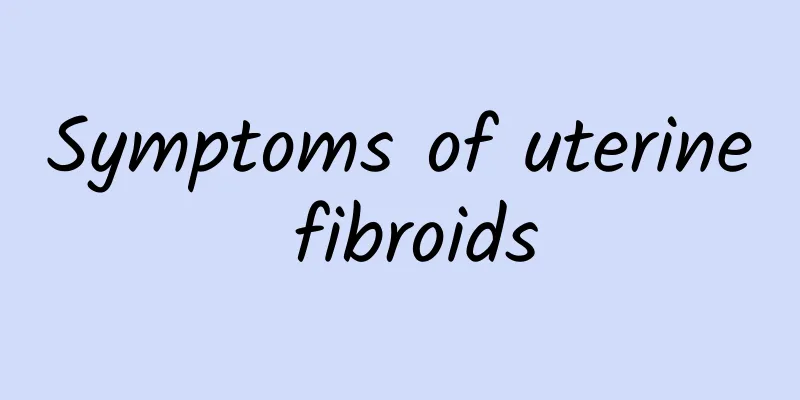Duration of abdominal pain caused by intrauterine adhesions: Understanding common symptoms and treatment

|
🌈Abdominal pain caused by intrauterine adhesions. Intrauterine adhesions are a gynecological disease that may cause abdominal pain, irregular menstruation and other problems. So, how long will the abdominal pain caused by intrauterine adhesions last? And how should we deal with it? 👇 Intrauterine adhesions are a pathological condition caused by damage to the endometrium or postoperative sequelae. Intrauterine adhesions may cause abdominal pain, irregular menstruation, infertility and other symptoms. The duration of abdominal pain caused by intrauterine adhesions depends on factors such as the degree and location of the adhesions and the treatment method. Mild intrauterine adhesions may cause intermittent abdominal pain, while severe intrauterine adhesions may cause persistent abdominal pain. In some cases, the abdominal pain may worsen during menstruation. For some women, intrauterine adhesion abdominal pain may last for days, weeks, or even longer. 🌈So, if there is abdominal pain due to intrauterine adhesion, what should we do? 👇 It is recommended to seek medical attention in time and seek help from professional doctors. The doctor will understand the situation of intrauterine adhesions through gynecological examinations, B-ultrasound, etc., and formulate appropriate treatment plans based on the specific situation. There are two main methods for treating intrauterine adhesions: drug therapy and surgical treatment. Drug therapy mainly uses hormone drugs to inhibit the inflammatory response of the endometrium and reduce the formation of adhesions. Surgical treatment uses minimally invasive surgical methods such as hysteroscopy to directly remove adhesion tissue and restore the normal shape of the uterine cavity. 🌈Note: When dealing with intrauterine adhesions and related abdominal pain, please keep the following important points in mind👇 🍀1. Seek medical attention promptly: If abdominal pain due to intrauterine adhesions occurs, it is recommended to seek medical attention promptly and seek help from a professional doctor. Early diagnosis and treatment are essential to alleviate symptoms and prevent further complications. 🍀2. Treatment methods: There are two main methods for treating intrauterine adhesions: medication and surgery. Medication is usually used for mild adhesions, while surgery is suitable for more serious cases. Be sure to follow the doctor's advice for appropriate treatment. 🍀3. Preventive measures: Pay attention to personal hygiene and avoid reproductive tract infection, which is an important measure to prevent intrauterine adhesions. Maintaining a clean and healthy lifestyle is essential to maintaining the health of the reproductive system. 🍀4. Living habits and diet: Maintaining good living habits and a balanced diet helps maintain reproductive health. Adequate rest, moderate exercise and a nutritious diet are key factors in maintaining overall health. Intrauterine adhesions are a gynecological problem that requires attention. The abdominal pain and other complications it may cause should not be ignored. Understanding the duration of abdominal pain caused by intrauterine adhesions and coping strategies can help us better maintain our reproductive health. |
<<: What is menopausal syndrome?
>>: Can levofloxacin be used for pelvic inflammatory disease?
Recommend
How to cure menopause quickly
Women will experience menopause at a certain age....
Which topical medicine is better for female cervicitis? Several precautions for drug treatment of cervicitis
For diseases like cervicitis, we must first figur...
Will I die from cervical warts?
The harm of cervical warts in women. Cervical war...
How many days does it take for amenorrhea to get menstruation after taking progesterone? How many pills of 50mg progesterone should be taken a day to induce menstruation?
In recent years, amenorrhea has become a major pr...
Fatty liver disease reversal victory! Special medicine: Safe weight loss depends on these 4 methods
Can weight loss reverse fatty liver disease? The ...
Do you choose the abortion method?
Abortion is a way to terminate pregnancy. At pres...
How can women avoid cervical erosion?
Cervical erosion is very common for female friend...
Lower abdominal pain may be a manifestation of chronic cervicitis
Many female friends have symptoms of lower abdomi...
What are the different aspects of the cost of treating irregular menstruation?
Generally, female friends will actively treat irr...
Eat beans to lose weight! Red beans, soybeans, and peas are all good
Have you eaten beans today? Legumes such as red b...
Key points of postoperative care for uterine fibroids that require high attention
Surgical treatment is one of the treatment method...
Losing weight too quickly! Doctor: It is easy to gain weight again and harmful to the body
Using the wrong method to lose weight and detox w...
What tests should be done for cervical erosion in women? Five tests are necessary to confirm cervical erosion
I believe that many women are unable to discover ...
Brief analysis of several common symptoms of right ovarian cysts
As a common type of ovarian cyst, right ovarian c...
What are the symptoms of adnexitis?
Adnexitis is a common type of gynecological infla...









